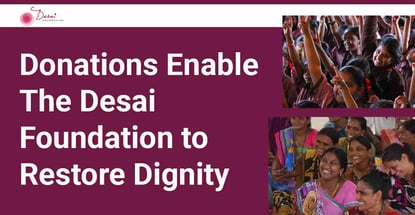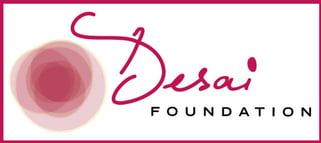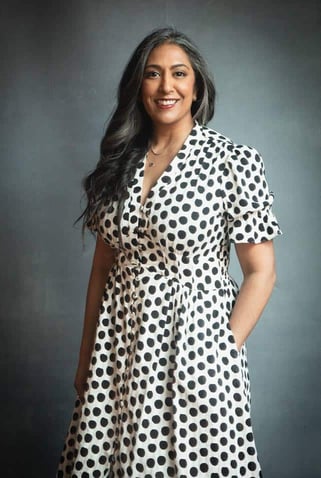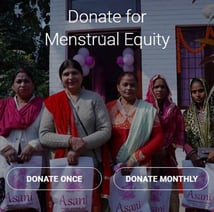
Our experts and industry insiders blog the latest news, studies and current events from inside the credit card industry. Our articles follow strict editorial guidelines.
In a Nutshell: The Desai Foundation is in the noble business of building and restoring dignity. The organization efficiently uses donations to fund its various programs, the most prominent of which concerns menstrual equity. The majority of girls in India aren’t familiar with what menstruation is prior to experiencing their first period. The Desai Foundation provides comprehensive menstrual education to these girls and their communities as well as practical items such as sanitary products. The organization also provides educational programs on overall health concerns and vocational training for women in rural communities.
Dignity is a fundamental human right. Many people take dignity for granted, only to become concerned with it when they temporarily lose it or feel their dignity has diminished.
But how can lost or diminished dignity be restored? What if someone’s circumstances dictate that dignity is never established in the first place? These questions are not easy to answer, nor are they comfortable to even consider.
Angela Merkel, who served as the Chancellor of Germany from 2005 to 2021, once observed, “When it comes to human dignity, we cannot make compromises.”
The Desai Foundation confronts the challenge of restoring and building dignity by helping those who need it the most. It is a programmatic nonprofit organization that empowers girls and women in rural India, and around the world, through health awareness and vocational programs. The Desai Foundation has been committed to this cause for over two decades.

Megha Desai, the Desai Foundation’s president, explains that when dignity is cultivated, people can dream beyond their circumstances. Her TedXTalk, “The Power of Cultivating Dignity”, gives a sense of the organization’s beliefs and commitments.
The Desai Foundation is fueled by the donations it receives from those who support its cause. The organization matches every donated dollar. The Desai Foundation takes pride in its efficiency and ability to make a lasting impact with each dollar it receives in donations. The organization doesn’t bear any infrastructure costs, and its staff is made up of volunteers. The Desai Foundation says that a donation of $100 will impact 400 girls in India.
The organization estimates that women give 90% of each dollar invested in them back to the community. So investing in women generates well-being among an entire community.
Menstrual Equity is Essential to Well-Being
Menstrual equity is at the forefront of the Desai Foundation’s initiatives. The need for menstrual equity is urgent in India, the world’s most populous country.
The majority of girls in India are not prepared for their first period. In fact, a staggering 71% of Indian girls are not aware of what menstruation is prior to having their first period. This lack of knowledge can put the girls’ health at risk.
Girls who are caught off guard by their first period often resort to using unsanitary objects, such as newspapers or pieces of fabric, to aid them. Clean water is also not readily available throughout India. This inhibits the cleansing of sanitary products and can lead to infection and improper disposal of products, which increases pollution in communities.
“My team and I have worked for menstrual equity in rural India over the past 15 years,” Desai explains. “We’ve seen the damage that can be done to the mental and physical health, education, livelihood, and dignity of menstruators when they aren’t provided with the right information to manage their periods.”

The Desai Foundation provides girls with education programs that teach them about their bodies and how to best care for them. By understanding what menstruation is, girls can take the appropriate steps to manage their periods with pride.
The Desai Foundation also educates young men and boys about menstruation and menstrual equity. The lack of menstrual knowledge among men in India has contributed to a stigma and shaming of women when they have their period.
Many women are removed from society while menstruating and some have even been the targets of extreme violence. Education around this topic serves to promote peace, compassion, and dignity in these communities.
In addition to education, the organization sells affordably priced sanitary pads to Indian women and communities in need.
In the United States, where 2 in 5 women struggle with access to sanitary products, the Desai Foundation focuses on advocacy and support.
“Menstrual equity rights are under attack right here in the United States,” Desai says. “I’ve seen what a nation becomes when menstrual equity isn’t prioritized and, I can tell you, the health consequences are dire, the mental anguish it causes can be dangerous and isolating. In more ways than one, our entire society is held back.”
Holistic Health Education for Everyone
In addition to its core commitment to menstrual equity, The Desai Foundation rounds out the services it offers to women, children, and communities in a variety of ways.
The primary avenue the organization helps communities is through practical health and awareness services. Its Asani Sanitary Napkin Program provides training to women living in rural India so that they can manufacture sanitary products and distribute them throughout the country. This program serves the dual purpose of providing a means of livelihood for the participating workers and enabling communities to have access to affordable, locally made sanitary products.
As part of its health and awareness services, the Desai Foundation also hosts health fairs for children to teach them good health and hygiene habits and provide their parents with information on required vaccinations for infants and newborns. The health fairs also offer vision assessments and other health care services to people in remote areas.
The organization provides general health seminars throughout India that promote self-care and offer gynecological screenings.

The second area of focus for the organization is community outreach and partner education programs. The Desai Foundation counts several universities among its partners. Through collaborations with its partners, the organization creates programs to promote learning, particularly among young girls.
The Desai Foundation provides one of the only education programs in rural India that covers a broad range of subjects.
Vocational training is the organization’s third area of focus outside of menstrual equity. This program teaches women in rural communities skills that can be used to obtain gainful employment. Providing women with skills that enable them to earn a steady income gives them autonomy over their finances and their lives.
The vocations that are covered in this program cover a broad spectrum of careers. Classes are offered that teach beauty parlor skills, jewelry making, candle dyeing, and fine chocolatiering. In addition, broader life-skills courses in areas such as literacy, financial literacy, and computer and technology training are also available.
Invest in the Future by Investing in People
Building and restoring dignity for those who need it most is a noble mission, but it’s certainly not an easy one. Overcoming ignorance, misconceptions, and standing up for marginalized communities is a tall order.
How can the mission’s success be measured?
The Desai Foundation uses two key metrics to measure its success and impact. First, it asks whether it is providing programs that meet the needs of the community. Next, it inspects whether its programs are cultivating dignity for the women, children, and families it is serving.
The organization assesses whether women feel confident and empowered after engaging with its programs. In India, cultivating a woman’s feelings of self-worth is oftentimes more important to her than any financial rewards she may reap from a Desai Foundation program.
The organization’s impact report highlights overall achievements, while annual reports show the growth of its program over the years.
Though its accomplishments to date have been impressive, the Desai Foundation continues to build momentum. An early 2023 visit from former Secretary of State Hillary Clinton underscored the advancements the organization is making in bettering women’s lives.
“We are being recognized for our work to empower women and girls globally by world leaders and diplomats,” Desai says. “Secretary Clinton hailed our program for the work it does to empower local women to engage with their communities in crisis through health, livelihood, and menstrual equity programs.”


![Mission Lane Credit Card Preapproval ([updated_month_year]) Mission Lane Credit Card Preapproval ([updated_month_year])](https://www.cardrates.com/images/uploads/2022/05/Mission-Lane-Credit-Card-Preapproval.jpg?width=158&height=120&fit=crop)